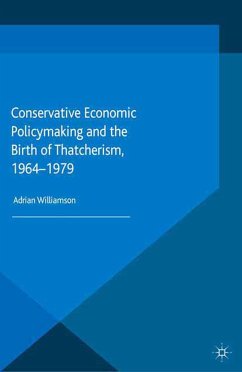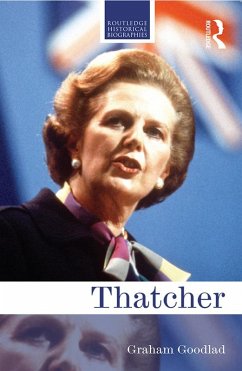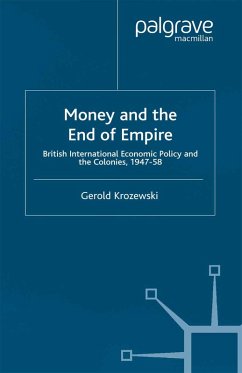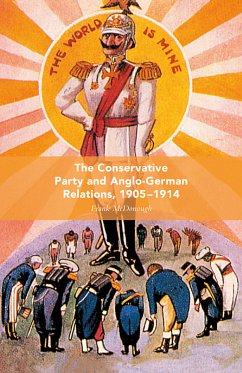
Conservative Economic Policymaking and the Birth of Thatcherism, 1964-1979 (eBook, PDF)
Versandkostenfrei!
Sofort per Download lieferbar
104,95 €
inkl. MwSt.
Weitere Ausgaben:

PAYBACK Punkte
52 °P sammeln!
In this book, Adrian Williamson investigates the processes by which Thatcherism became established in Tory thinking, and questions to what extent the politician herself is responsible for Thatcherism within the Conservative Party.
Dieser Download kann aus rechtlichen Gründen nur mit Rechnungsadresse in A, B, BG, CY, CZ, D, DK, EW, E, FIN, F, GR, HR, H, IRL, I, LT, L, LR, M, NL, PL, P, R, S, SLO, SK ausgeliefert werden.












